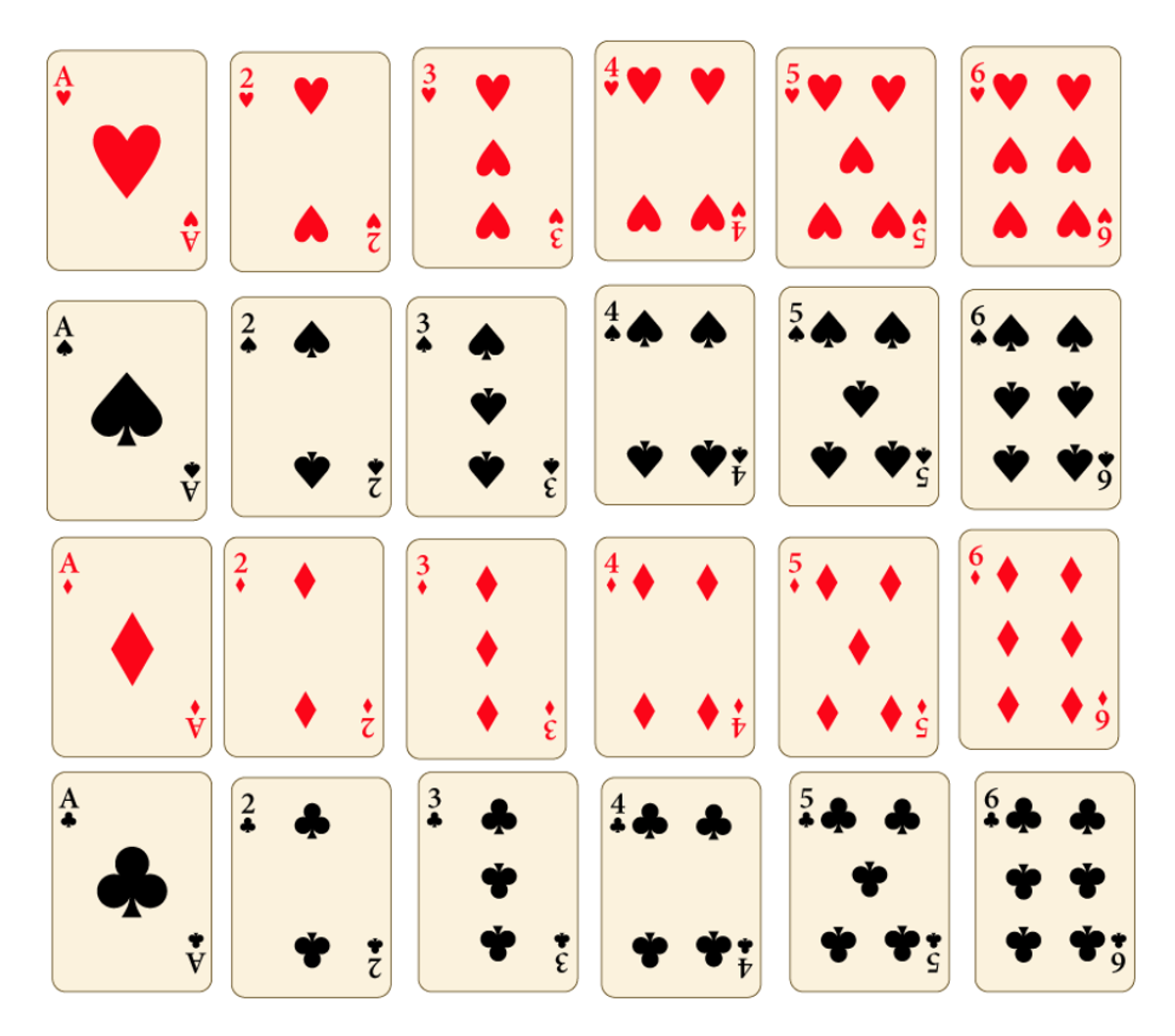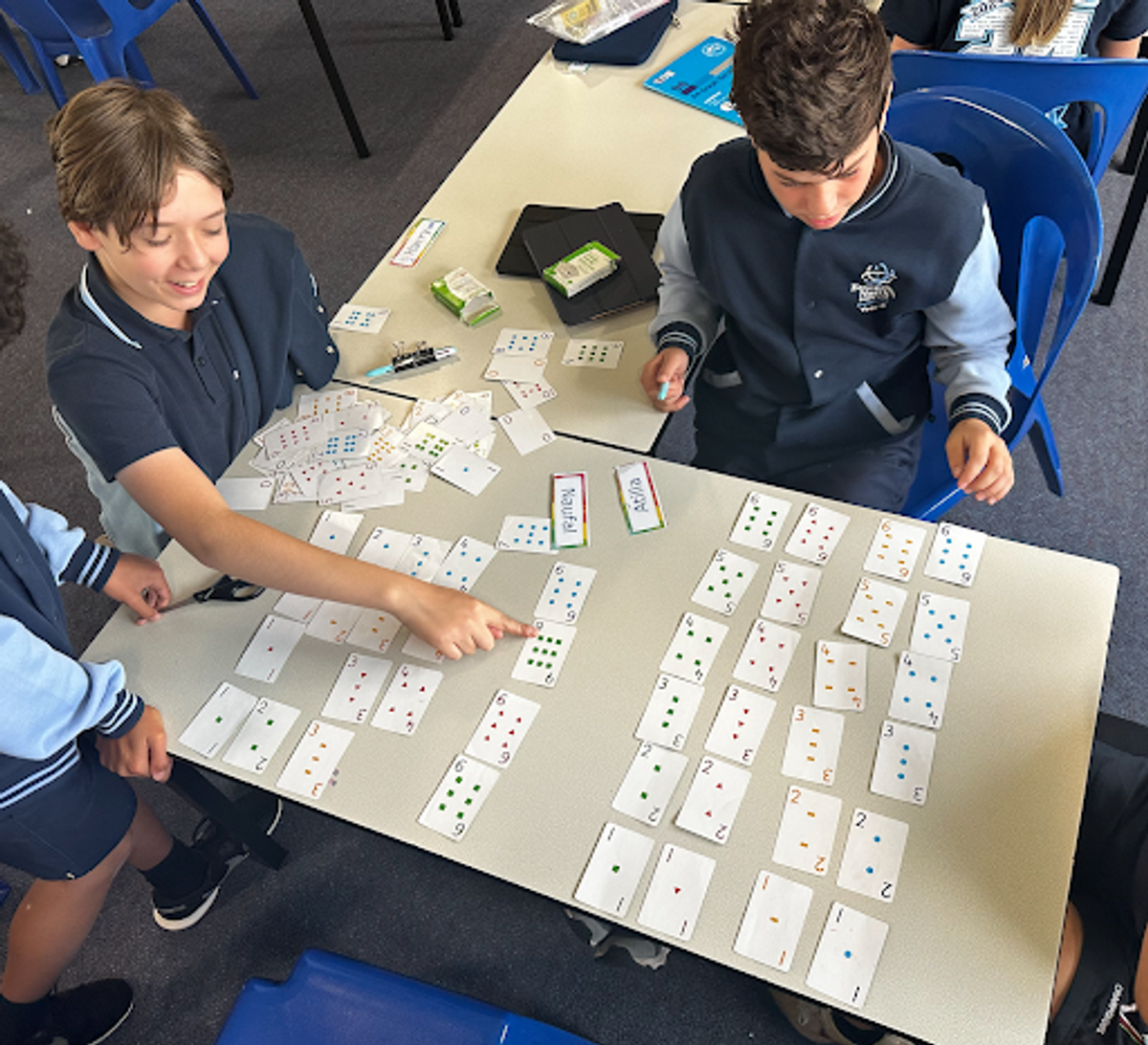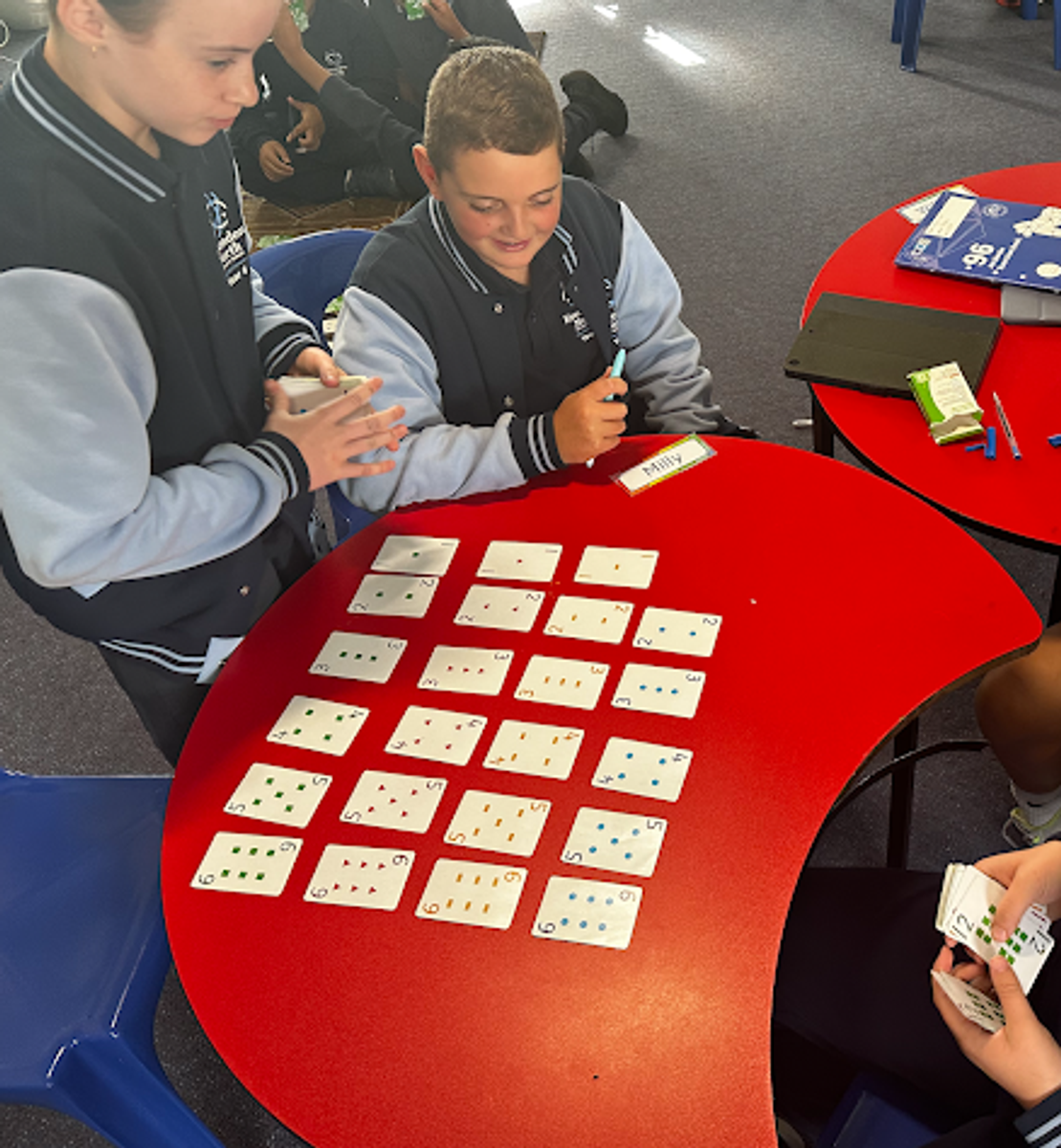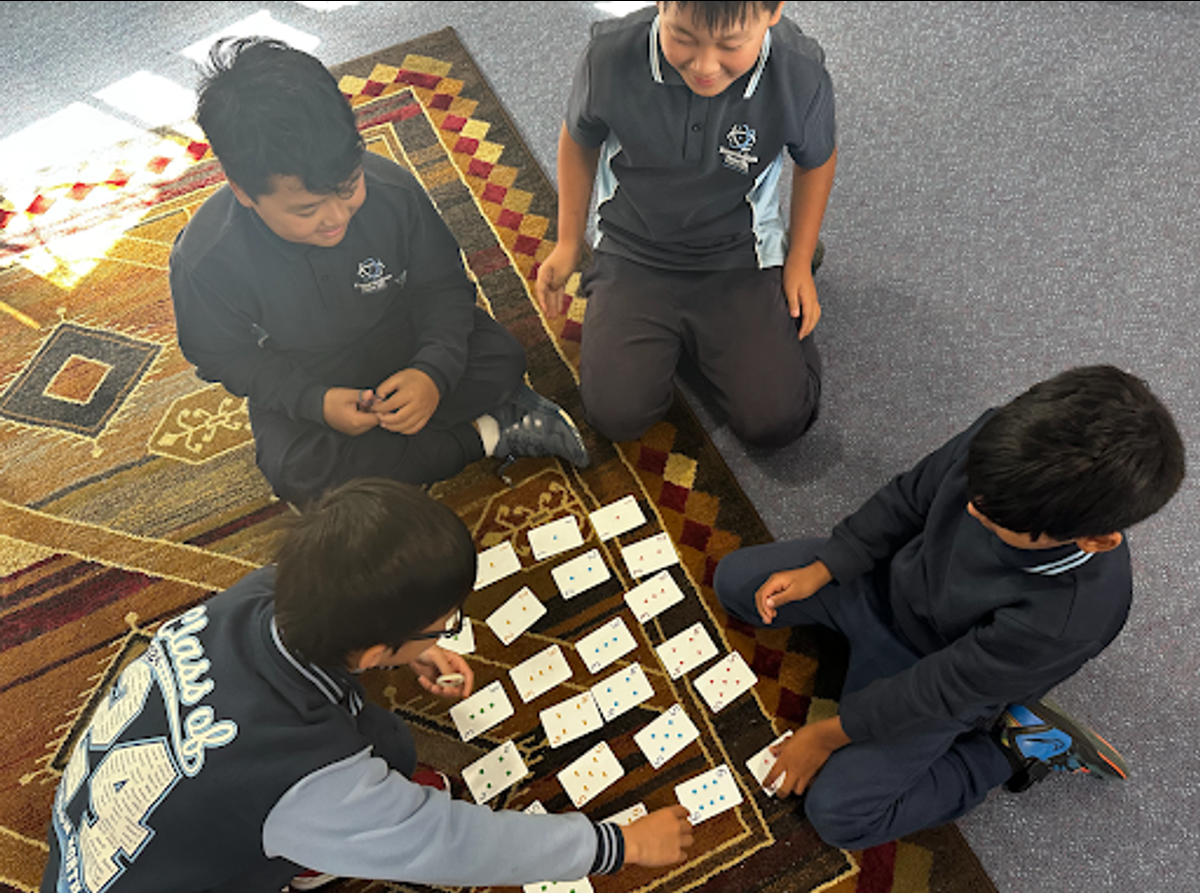Numeracy at ENPS

Using Games to Boost Mathematical Wellbeing
Supporting student wellbeing is a school priority and as part of strengthening students mathematical wellbeing, teachers have been reflecting on and adapting their approaches to maths teaching.
In class, students learnt about the learning pit to think about mathematical mindsets. As adults we will often reflect on some of our experiences from schooling that developed a negative disposition towards maths learning. Many of us (and students) will feel anxious, disengaged or a negative attitude towards mathematical thinking. Research has found that lessons that support positive maths disposition have elements that are fun, interesting and where they can learn with others.
As part of the warm-up part of a lesson, teachers have been supporting fluency and understanding by using games as intentional fun.
Our newsletters will feature a new game that can be played at home to continue to support your child’s positive mathematical disposition.
Maths Games to Play at Home
Counting Handfuls (Year F - 1)
Maths Concepts: Estimating, counting
Players: Two
Equipment: A collection of small objects e.g. lego, stones, dried beans etc
Instructions
- Collect a large handful of small objects.
- Estimate how many are in the handful and tell your family ‘I estimate I have…..’
- Count your collection and organise them to see how many you have
- How accurate was your estimate?
31 (Year 2 - 6)
Math Concepts: Addition to thirty-one, thinking ahead
Players: Best for two
Equipment: One deck of playing cards
How to Play
Lay out the ace to six of each suit in a row, face-up and not overlapping, one suit above another. You will have one column of four aces, a column of four twos, and so on - six columns in all.
The first player flips a card upside down and says its number value. Then the second player turns down a card, adds it to the first player’s number, and says the sum.
Players alternate, each time turning down one card, mentally adding its value to the running total, and saying the new sum out loud. The player who exactly reaches thirty-one, or who forces the next player to go over that sum, wins the game.
Melissa Paola
Mathematics Learning Specialist and Year Six Teacher




